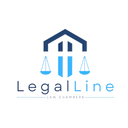
Work Permit in South Sudan: Procedures and Requirements
- Foreign Investment
- Corporate Law
Securing a work permit in South Sudan is essential for foreign nationals intending to work legally within the country. Governed by the National Ministry of Labor, specifically the Department of Alien Employment, this process ensures that expatriates meet the legal and regulatory requirements to engage in employment.
At Legalline Law Chambers, we understand the complexities involved in navigating the work permit application process. This guide provides a detailed breakdown to assist employers and foreign employees in ensuring compliance with South Sudan’s labor laws.
What Is a Work Permit?
A work permit is an official document issued by the National Ministry of Labor in South Sudan. It grants legal authorization for foreign nationals to work within the country, ensuring that their employment aligns with national labor regulations. Without this permit, foreign employees cannot legally work in South Sudan, and both the employer and employee may face significant penalties.
The Work Permit Application Process
To obtain a work permit in South Sudan, applicants must follow a structured process. Below is a step-by-step guide:
Application Submission
The applicant (or their employer) must submit an application to the National Ministry of Labor. This involves obtaining and filling out an application form, which costs $100.
Document Requirements
Applicants must attach the following documents, tailored to their category of employment:Additional documentation may be required based on the industry or employer:
- Institution/Business letterhead application.
- Two passport-sized photos (white background).
- Valid passport copy (valid for at least one year).
- Entry visa.
- Smart card (for renewals).
- Curriculum vitae.
- Academic certificates.
- Certificate of incorporation or registration certificate of the employer.
- Tax identification certificate of the employer.
- Trade license and operation license.
- Memorandum of understanding (first and last pages).
- Employment contract.
- For NGOs: NGO operation license and RRC clearance/recommendation letter.
- For oil and gas companies: Service company registration.
- For financial institutions: Bank operation license.
- For religious organizations: Religious certificates.
- For medical professionals: Approval from the Ministry of Health.
Review and Data Entry
Ministry inspectors review the application and supporting documents. Verified data is then entered into the processing system.
Payment of Fees
Once the application is approved, a payment voucher is issued. The applicant must pay the prescribed work permit fee at the designated non-oil revenue bank account. A bank receipt is provided as proof of payment.
Issuance of the Work Permit
Upon presenting the bank receipt, inspectors conduct a final verification. The work permit, in the form of a smart card, is issued with a validity of one year from the date of issuance.
Key Considerations for Employers and Employees
Compliance with Documentation
Employers and employees must ensure that all required documents are valid and properly authenticated. This includes academic certificates, which may need additional verification for foreign nationals.
Timely Renewals
Work permits must be renewed annually. Applicants for renewal should provide their existing smart card and updated supporting documents to avoid disruptions.
Penalties for Non-Compliance
Engaging foreign workers without a valid work permit can result in fines, legal disputes, and potential business sanctions. Employers must prioritize compliance to protect their operations and reputation.
Special Industry Requirements
Specific sectors, such as oil and gas, banking, or health services, may require additional clearances and permits. It is crucial to identify and meet these sector-specific requirements early in the application process.
Why Work with Legal Experts?
Navigating the work permit process can be daunting, especially for first-time applicants or employers unfamiliar with South Sudan’s labor regulations. At Legalline Law Chambers, we provide tailored legal support to streamline this process. Our expertise ensures:
- Accurate preparation and submission of applications.
- Compliance with sector-specific requirements.
- Prompt resolution of any legal or administrative challenges.
Conclusion
Securing a work permit in South Sudan is not just a legal formality but a critical step in ensuring smooth and lawful operations for foreign employees and their employers. By understanding and adhering to the outlined procedures, businesses and expatriates can avoid unnecessary delays and penalties.
For professional guidance on work permit applications and labor compliance in South Sudan, contact Legalline Law Chambers:
- Office: Chan House, 2nd Floor, Atla-bara C, Juba, South Sudan.
- Email: elario@legallinesouthsudan.com
- Tel: +211 921648642
At Legalline Law Chambers, we are committed to providing expert legal solutions that simplify complex processes, allowing you to focus on your business and career goals.
Share Insight
Continue Reading from Our Legal Knowledge Center
Explore more insights on similar topics to deepen your understanding and stay informed about Legal Line Law Chambers' efforts and initiatives.

Step-by-Step Guide to Registering a Business in South Sudan
Looking to start a business in South Sudan? This step-by-step guide from Legalline Law Chambers covers everything you need to know—from choosing a business structure to obtaining licenses and maintaining compliance. Get expert legal support to ensure a smooth registration process.


Legal Consultants in South Sudan
Discover the essential role of legal consultants in South Sudan, guiding businesses and individuals through the complexities of local laws and regulations.


South Sudan's Oil and Gas Law: Key Regulations and Strategic Framework for Growth
Explore South Sudan's comprehensive legal framework governing its vital oil and gas sector, established to attract investments, ensure transparency, and promote sustainable resource management. This blog delves into key regulations, including the Petroleum Act and Petroleum Revenue Management Act, a...

